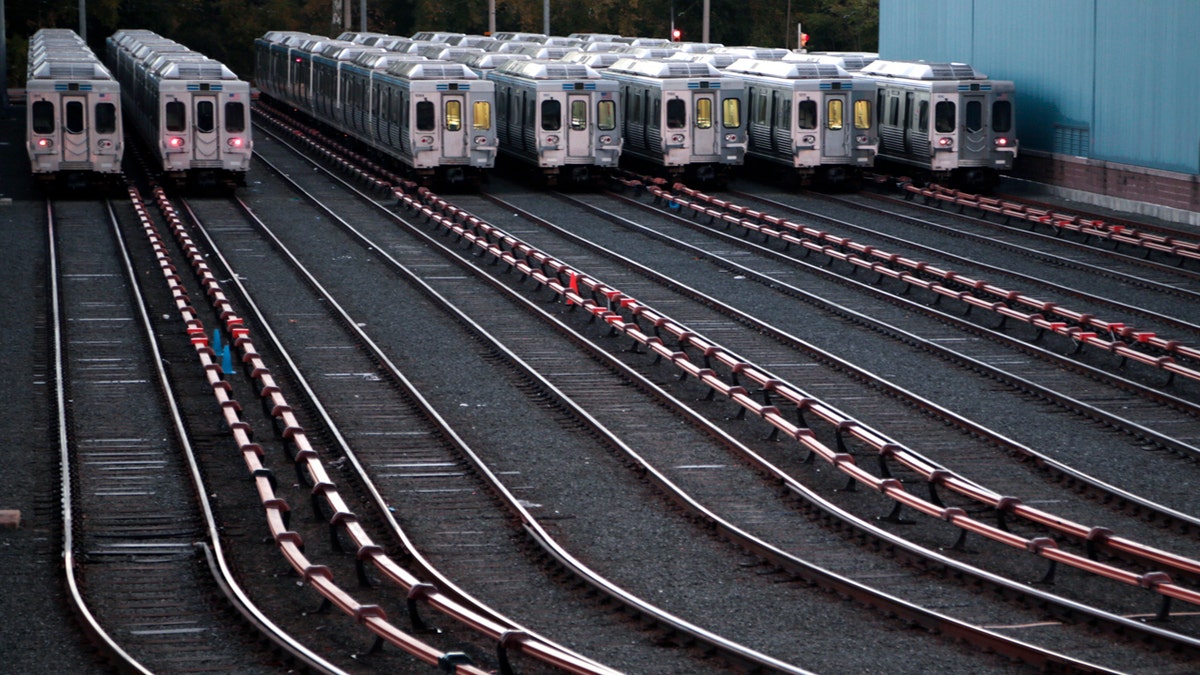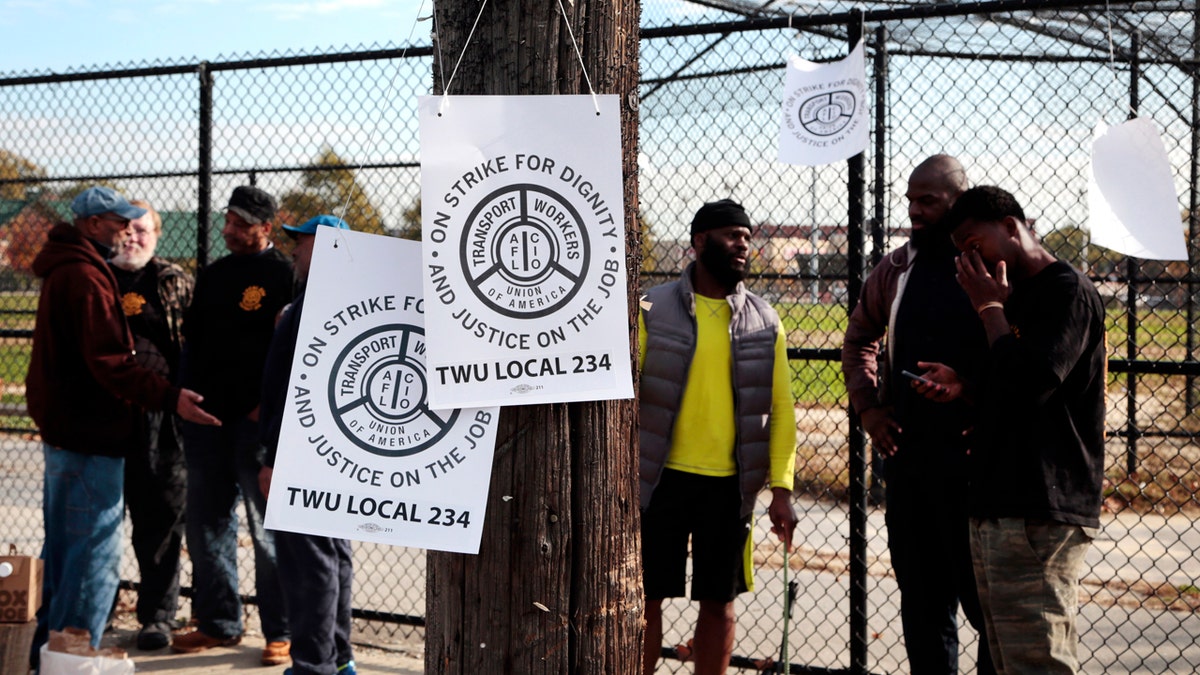
Market-Frankford line trains remain idle at a Southeastern Pennsylvania Transportation Authority (SEPTA) station Tuesday, Nov. 1, 2016 in Upper Darby, Pa., just outside Philadelphia, (AP Photo/Jacqueline Larma)
PHILADELPHIA – Philadelphia's main transit agency on Thursday asked for assurances from the city's striking transit union that it will suspend its walkout on Election Day if no contract agreement is reached by then. Without that promise, the agency said, it will go to court to try to force transit employees to work on Nov. 8.
The head of the Transport Workers Union local called the request "not helpful" and said the Southeastern Pennsylvania Transportation Authority should focus instead on reaching a settlement as the strike entered its third day.
Democratic city leaders are worried that if the city's buses, trolleys and subways remain idle through Election Day, some voters won't get to the polls because of having to spend so much time getting to and from work.
Pennsylvania is a battleground state, and the vote in overwhelmingly Democratic Philadelphia is critically important to Democratic presidential nominee Hillary Clinton as she battles Republican Donald Trump.
SEPTA board Chairman Pasquale T. Deon Sr. said he wanted TWU leaders to "assure the citizens of the Philadelphia region that, if necessary, they will suspend their strike for Election Day."

Signs hang on a telephone pole as workers picket across from the Callowhill SEPTA Depot Tuesday, Nov. 1, 2016, in Philadelphia. (AP Photo/Jacqueline Larma)
"If TWU does not provide that assurance, SEPTA will seek to enjoin this strike," he said in a statement.
Deon suggested that the union lacked a sense of urgency. TWU local president Willie Brown rejected that claim.
"Also not helpful is asking us to suspend the strike for Election Day," he said. "Rather than talking about next week, SEPTA and its board chairman should stop their games and work with us to get a settlement now."
When the union voted to authorize its strike, it also voted to not extend or suspend the strike during negotiations.
The union's 4,700 workers walked off the job after midnight Monday, shutting down transit service that provides about 900,000 rides a day. Pensions, work rules and health care costs were among the issues on the bargaining table.
The walkout is the ninth since 1975 by the city transit union. The last one, in 2009, lasted six days.
The result has been traffic gridlock at morning and evening rush hours; jammed and delayed regional rail service, which is still operating; and higher absenteeism at the city's high schools, which depend on SEPTA to transport many students. High school attendance was just over 60 percent Tuesday, the first day of the strike, down from nearly 87 percent the day before.
Democratic U.S. Rep. Bob Brady, who has been working to help end the impasse, said Thursday he believed the strike would be over by Election Day.
"We're gonna get it done," said Brady, of Philadelphia.
He said Clinton needs at least 460,000 votes in Philadelphia to offset Republican support in other parts of the state. He said earlier in the week he believed it was possible even if city transit remains shut down.
Democrat Ed Rendell, the city's former mayor, state's former governor and chairman of this past summer's Democratic National Convention host committee, sounded less confident. He told radio station WPHT earlier in the week that if the strike lasts through Election Day it will hold down turnout.
"It's a real problem and a real plus for Donald Trump," he said.
Motorists also were growing increasingly frustrated.
Kathy Miller, a commuter, said the drive from her Delaware home has, at times, taken her nearly five times longer than usual.
"This has got to end soon," Miller said. "People who don't have the privilege of accepting bosses or flex-time could feel a lot of pressure right now."

